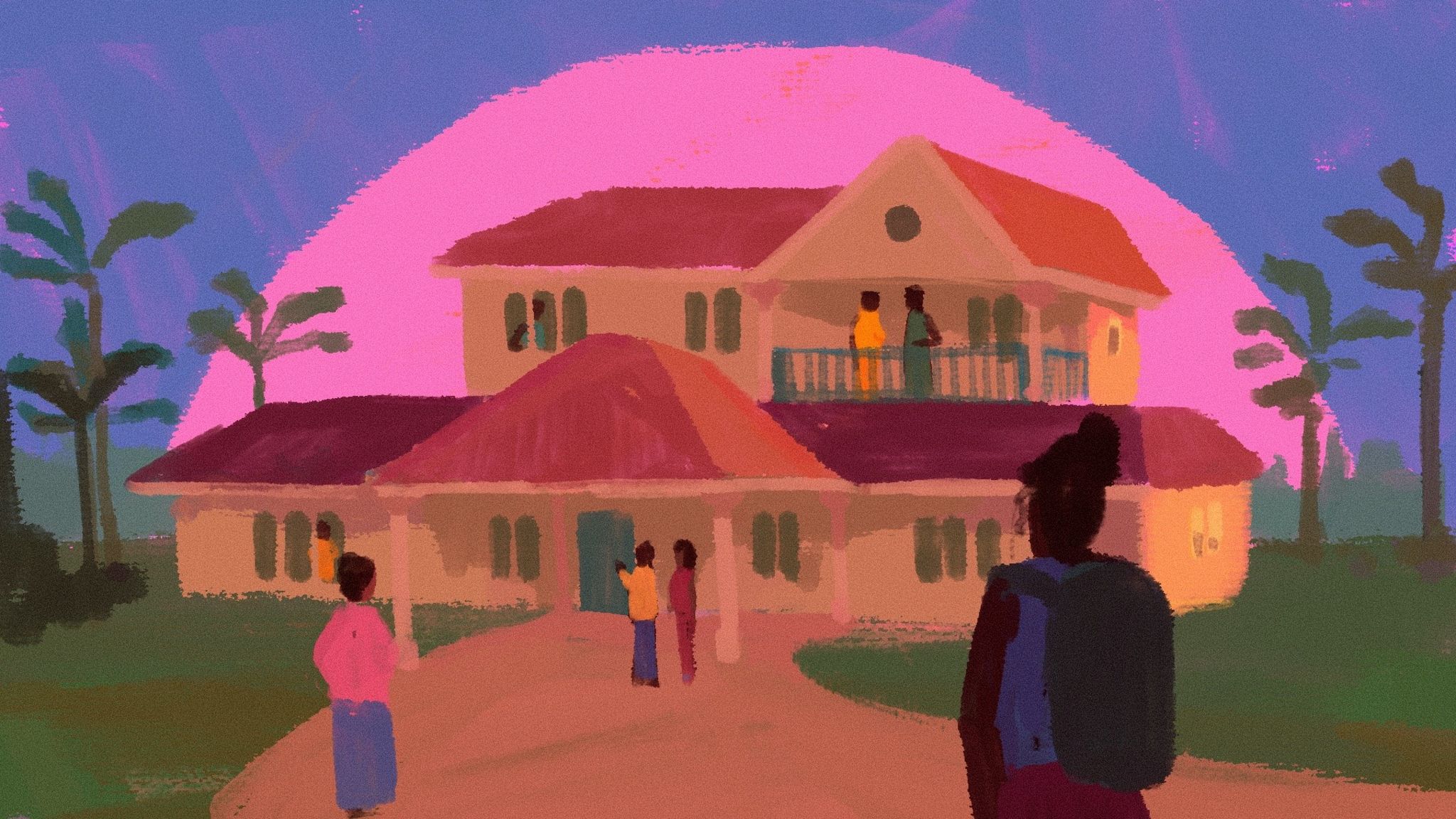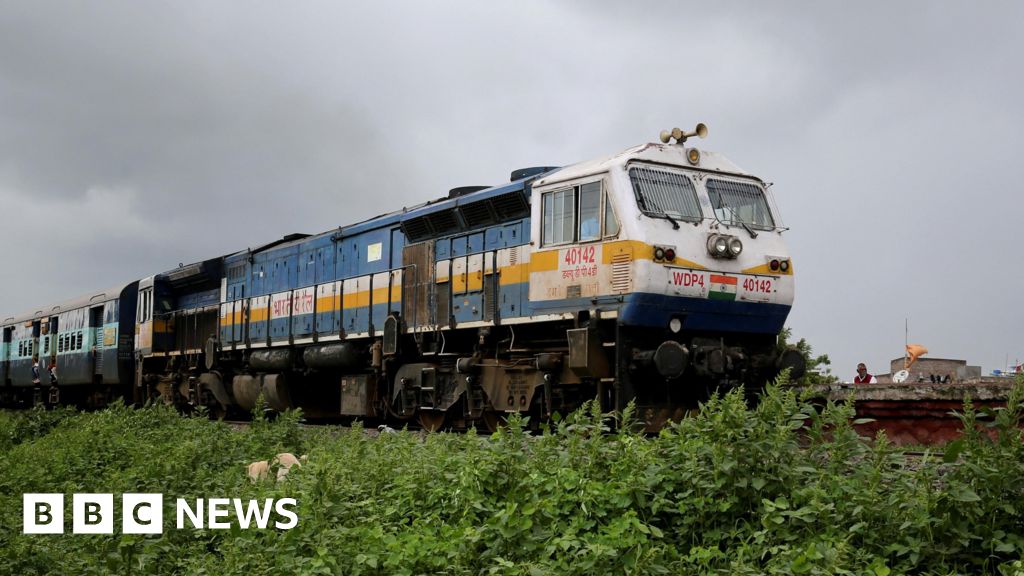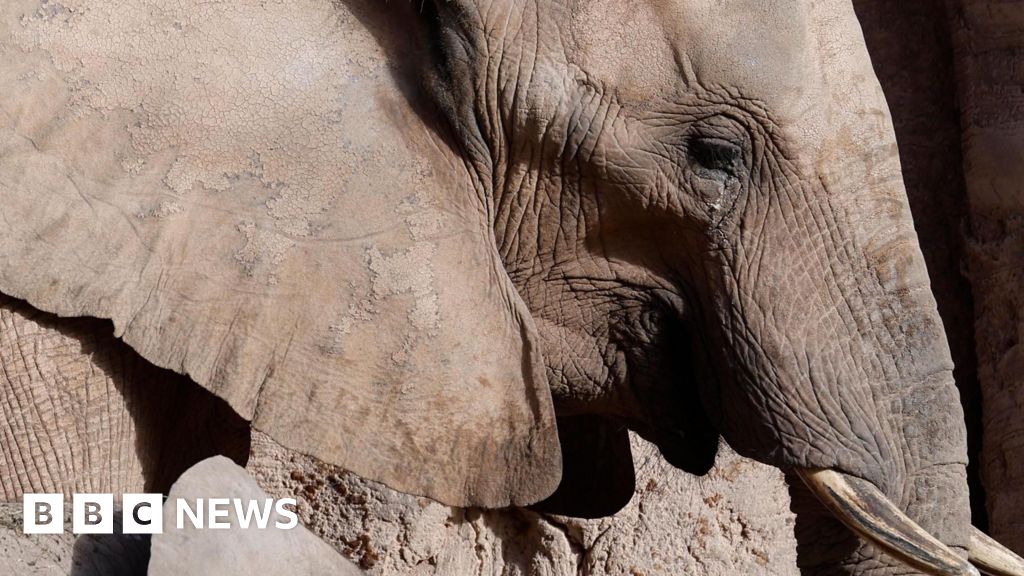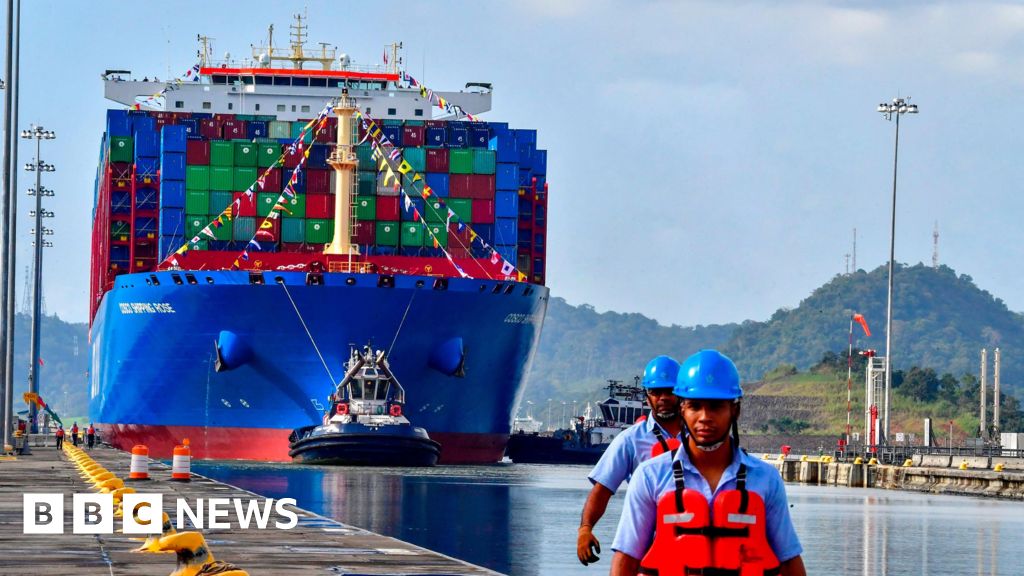ARTICLE AD BOX
By Megha Mohan
Gender and Identity reporter
 Image source, Shali Reddy
Image source, Shali Reddy
Two transgender women in the Netherlands, one American, the other British, have become a vital source of help for trans people in danger around the world. Operating on a shoestring budget, and often spending their own money, they are now hoping to turn a house in Kenya into a refuge for those fleeing violence.
All messages that arrive in Anne Ogborn's Trans Rescue email inbox are unique, but this one was particularly unusual. A friend of a friend had met eight young trans women in Mombasa, in a desperate situation. They were staying in what he described as "a one-room holding cell" and risked being attacked if they left. They were now running out of food. Could Anne help?
Sitting in her flat in the Netherlands, Anne immediately thought of a trans woman she knew in Kenya named Nuru (not her real name). It had been six months since Anne and her flatmate had provided support to Nuru, when she needed to find a community of trans people in Mombasa.
But Nuru's case had been simpler, a tragic story that Trans Rescue hears all too often.
Nuru, 26, had known she was transgender from a young age. "I was always with the girls," she says.
Until puberty, this hadn't been a problem, but then the people of her village became suspicious of what they saw as an effeminate young man.
"I knew I was OK, that there was nothing wrong with me," she says. But her family didn't agree. They beat her and took her to a witchdoctor, who said a spell had been cast on her. That was why she had turned out this way, she said.
A year ago Nuru finally managed to run away. She made it to a bus stop and waited. When an open van transporting charcoal came by she clung to the back of it, even though she had no idea where it was heading. She would have gone anywhere.
Hours later, when the van slowed down, she saw the open sea and white sands of Mombasa. She found work there as a waitress, but when people discovered she was trans, they shouted abuse and threats. Petrified, Nuru stopped leaving her house. Then one of her friends suggested contacting Anne for advice.
Image source, Shali Reddy
Born and raised in the US, Anne has been a vocal advocate of trans rights since the 1980s.
Curious to learn about the experiences of gender-diverse people around the world, she even moved to India to live with the Hijra community - a group sometimes referred to as India's "third sex" who have existed in Hindu society for 2,000 years.
Back in the US, she had almost given up her work as an activist by the time Donald Trump was elected president in 2016.
Watching a president taking steps to ban trans people from the military and to withdraw protections for trans people in the workplace and schools, Anne became increasingly uncomfortable in her country.
But it was a leaked US Department of Health memo that proposed defining someone's gender on the basis of their genitalia at birth that was the final straw for her.
Anne met another trans woman named Misty Hill who felt the same, and in 2018 they left the US. Anne moved to the Netherlands and Misty to Ireland.
"Misty and I said to each other, 'When we get ourselves out of the US, we will start an organisation to help others get out,'" Anne says.
In 2020, Misty founded an organisation she called TransEmigrate, with support from Anne.
They had expected to receive calls from North America, and maybe some countries in South America. But as word spread the messages started coming from all over the world.
"We got a quick education on how many trans people are trapped in their countries," says Anne.
Image source, Shali Reddy
Last year, Anne re-launched the organisation as Trans Rescue, with a British trans woman in Amsterdam, Jenny List. (Misty now does her own advocacy work in Ireland.) They receive about four requests for help each week, mostly from South America, the Middle East and North Africa.
Although the organisation has obtained charitable status, and can rely on the help of a dozen volunteers in several countries, resources are very limited.
"We reach people through an underground online queer network. Somebody knows somebody," says Anne.
Volunteers keep their eyes peeled and ears to the ground. If they hear that a trans person is in trouble they will contact Anne and Jenny in Amsterdam, who will seek to arrange safe temporary accommodation.
Anne says the team have poured their own life savings into the operation, but they can only afford to physically move a fraction of those who contact them to a different country - 15 people so far.
"Moving people safely and legally is hard and slow," Anne says.
But in many cases they move them within countries. It may also be that what callers need most is information.
"Sometimes people just want to be made aware of their options," she says. "We work in countries where people are on the run because their existence is illegal. We are an essential service for trans people."
One person Trans Rescue helped was Nuru, arranging for her to move to a safe location, and putting her in contact with other trans women in Kenya.
Nuru asked if she could volunteer for Trans Rescue, so when Anne heard about the eight trans women in trouble in Mombasa, she knew who to call.
Nuru was happy to return the favour, but she wasn't prepared for what she saw: the eight of them were penned into a tiny, airless room, baking in the unforgiving Mombasa heat.
"They were burning," says Nuru. "They were traumatised."
Image source, Shali Reddy
The group had been housed there by a man who found them on a beach and took pity on them. They were clearly survivors of sustained physical and sexual abuse by several men.
They had barely any food and would sleep sitting up in their room, desperate to remain alert in case they were found and attacked.
Nuru called Anne and Jenny, who immediately arranged for them to be moved, and provided with money for food and rent.
Tragically, they still weren't safe in their new location. Just days ago, two were attacked by a group of men as they were walking on the beach, and one of them was killed.
For Anne, this underscores the need for a refuge for trans people, Eden House, to be located in a large Kenyan city.
It will not be a hiding place, like the secret safehouses Trans Rescue has used so far, but a spacious building where Anne hopes trans people can live openly, and without fear.
It would be the first of its kind in the world, she says.
"We would like the house to become an institution that is large enough to form a kind of bubble of trans acceptance around itself.
"We want it to be a place where trans men and women from other parts of the world can come and live.
"If we have a safe building in Kenya, we can get people in truly dangerous places to safety."
A house has been found, the task now is to find 10,000 euros (£8,600) to buy it and carry out basic repairs.
The seven surviving trans women in Mombasa would be the first residents. But it would be open to people from all over the world, Anne says, such as a trans man they helped to escape from Saudia Arabia this month, who might have been killed had he stayed longer.
One day Anne would like to be able to provide therapy for those who need it, but for now the focus is on physical survival.
"We're ordinary people. We want to live our lives."

 2 years ago
72
2 years ago
72








 English (US) ·
English (US) ·